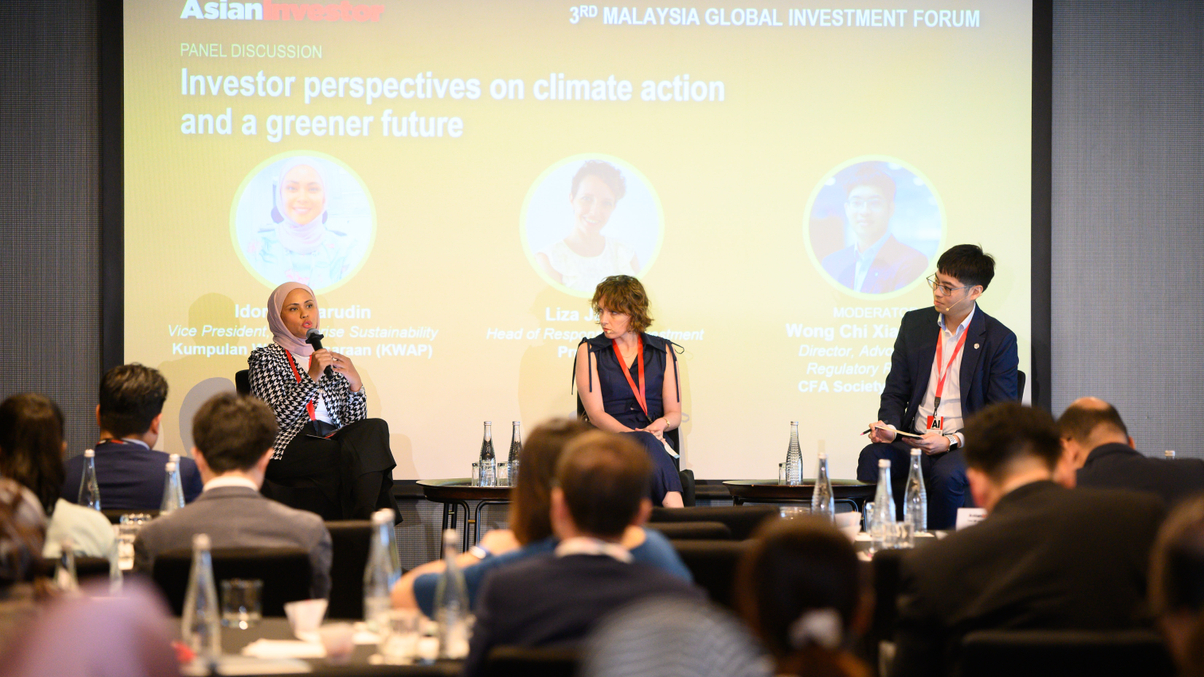KWAP, Prudential say institutions driving EM green development
Malaysia largest state pension fund sees institutions leading sustainability efforts through policy engagement and innovative investments, a trend that extends to emerging markets across the broader Southeast Asian region.

Malaysian institutional investors have played an increasingly important role in shaping the country's sustainable development agenda, going beyond traditional investment functions to actively engage policymakers and participate in national sustainability initiatives, according leading Malaysian pension fund Kumpulan Wang Persaraan (KWAP).
Sign in to read on!
Registered users get 2 free articles in 30 days.
Subscribers have full unlimited access to AsianInvestor
Not signed up? New users get 2 free articles per month, plus a 7-day unlimited free trial.
¬ Haymarket Media Limited. All rights reserved.


